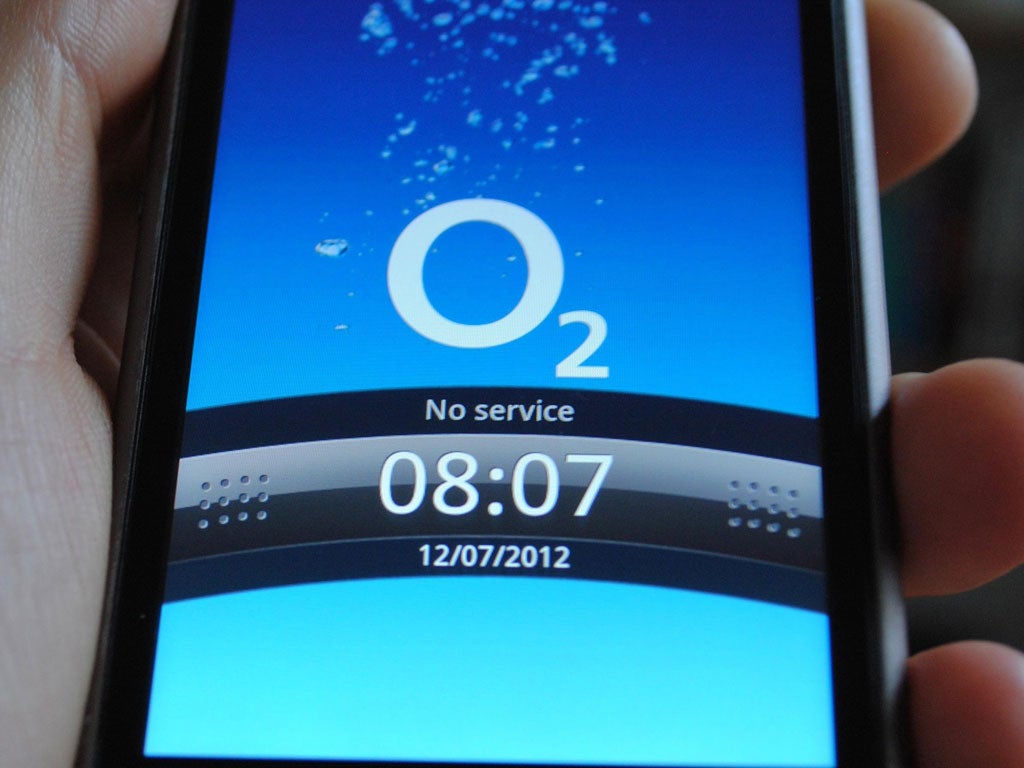O2 apologises after Islamophobic hate mail sent with SIM cards to British-Iraqi family
'It's horrible to think that there are people who have so much hatred in them that they set out to deliberately make others feel isolated and unwelcome'

Mobile phone provider O2 has apologised after racist leaflets and sim cards were sent to a British-Iraqi family, addressed to "Mr Isis Terroriste" and "Mr Getout Ofengland".
"We were really saddened to come across these letters, especially having a younger child in the house who we don't want to grow up witnessing such hateful language,” the family from Wembley in North London, said in a statement.
"It's even sadder to think that such hate speech has become normalised despite living in such a uniquely multicultural and diverse city like London."
After news of the leaflet emerged, a representative of the Muslim Council of Britain told The Independent that the organisation was concerned Islamophobic bigots are finding more and more ways to spread hatred.
"These Islamophobic bigots are finding more and more ways to spread their hatred," said Miqdaad Versi, its assistant secretary general. "In recent times, we have seen hate mail, a rise in physical violence against Muslims and even the UN special rapporteur on racism saying these ‘extreme views’ have gained ground. The reality is that hate has become normalised within sections of British society.
"And whilst it is imperative that corporates upgrade safeguards to prevent such incidents recurring, these are indicative of broader concerns and we continue to hope Government will finally start taking Islamophobia seriously."
Sura Jawad, a lawyer and friend of the family, also expressed her deep concern.
“I was completely horrified by it,” she told the BBC’s Victoria Derbyshire show. “I was talking to the gentleman that received it and he mentioned, in passing almost, what he had been sent in the mail."
His reaction to receiving the letters demonstrated how a hateful discourse has been “normalised” in the UK, she added.
“He was almost quite defeatist [in his] mentality,” she said, adding that it was "very 'what can you do, these things happen'.
"It's horrible to think that there are people who have so much hatred in them that they set out to deliberately make others feel isolated and unwelcome or who take comments like these light-heartedly. This shouldn’t be something that just happens."
An O2 spokesperson told The Independent that the company had "a rigorous data cleansing process in place to prevent any of our free products being sent to addresses with obscenities or offensive names and so this is a rare occurrence."
They added: "We are shocked by the letters that have been received and apologise to the family involved. If they decide to report this case, we will work closely with the police as part of their investigation. "It is understood that these Pay As You Go SIM cards were ordered online via the O2 website on 13 August 2017. To order a free SIM card online, a form must be completed identifying the name and address that the SIM is to be sent to.
"The family involved has been assured that O2 will work closely with them and the police to assist any future investigation if they choose to report the letters."
This was the latest in a number of recent hate mail incidents, which have seen mosques, politicians and individuals targetted.
Earlier this year, MPs received “Punish a Muslim” letters, some of which offered rewards for throwing acid, burning or bombing a mosque and pulling the head scarf off a Muslim woman.
The United Nations last week warned that the UK has experienced a growth in racism since the Brexit, which has contributed to the increased prominence of extreme views.
“Some people might experience [Islamophobic abuse] when they’re walking down the street and just brush it off,” said Jawad.
“But when it comes from a company like O2 or any sort of big organisation then to ignore it almost gives it a platform and legitimises it further. So it shouldn’t be ignored and it should be reported.
“Even just for the purposes of statistics, people should know that these things are happening.
Subscribe to Independent Premium to bookmark this article
Want to bookmark your favourite articles and stories to read or reference later? Start your Independent Premium subscription today.

Join our commenting forum
Join thought-provoking conversations, follow other Independent readers and see their replies